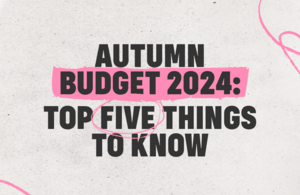What you need to know about the Autumn Budget 2024
On 30 October, Chancellor of the Exchequer Rachel Reeves delivered her first Budget in Parliament. Here are 5 things to know.

1. Major funding boost for the NHS
The government is investing £22.6 billion in the NHS over the next two years. This is the biggest increase in NHS spending since 2010 (excluding COVID-19 years) and will help patients to access 40,000 more elective appointments each week as well as upgrades for GP facilities, new surgical hubs, and more diagnostic scans.
2. Protecting working people’s living standards
The Chancellor confirmed that working people will see no changes to their payslips as there will be no increases to Income Tax, VAT, or employee National Insurance. From April 2025, the National Living Wage will rise to £12.21 per hour – that’s £1,400 more per year for full-time workers. Pensioners will benefit from a 4.1% increase in the State Pension, and the fuel duty freeze means continued support for motorists.
3. Investing in Britain’s future
Major infrastructure investment totalling over £100 billion will go towards rebuilding our crumbling schools and hospitals and fixing our roads, including over 1 million potholes. Funding will also support local transport and regional growth as well as boosting our digital infrastructure, so that everyone across the country can access high power broadband.
4. Supporting businesses and economic growth
We are protecting the businesses that make up our high streets by permanently reducing tax on properties used for retail, leisure and hospitality from 2026. In the meantime, the government is supporting these businesses with a 40% reduction in their business rates bill, capped at £110,000.
We are also freezing the small business multiplier for one year to protect over a million small properties from inflationary bill increases. Lastly, the Chancellor confirmed that she will maintain Corporation Tax at 25% for the duration of Parliament – the lowest rate in the G7.
5. Fair and responsible taxation
We are reforming the tax system, closing loopholes and improving HMRC efficiency. The money saved will go directly to funding public services and fixing the foundations of the economy. Finally, this Budget laid out how we will ensure economic stability through new fiscal rules (rules the government sets itself to manage its own decisions on spending and taxes). The new fiscal rules will make sure that the government only borrows for investment and that public sector debt falls over time.
Read the Budget in full to understand what it means for you.